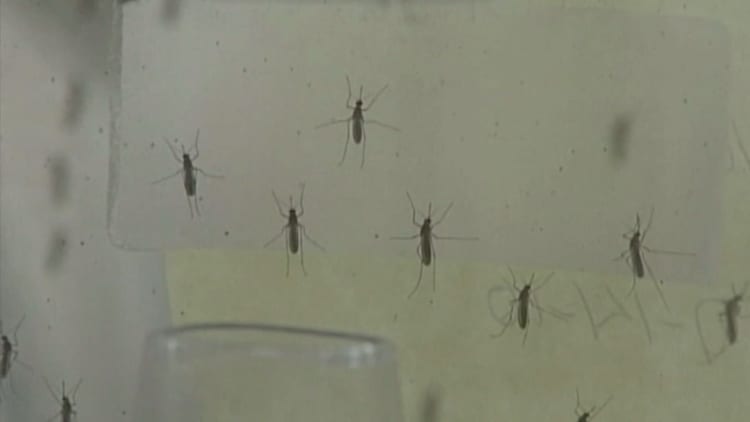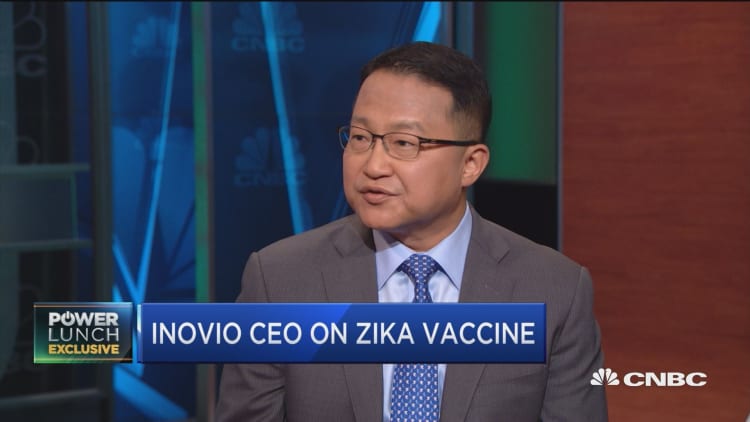A strong majority of Americans favor the idea of spending more money to prevent the spread of the Zika virus in the United States, even though relatively few of them fear the virus personally, a new poll revealed Thursday.
Just 13 percent of Americans said they see Zika as a major threat to them personally, according to the Kaiser Family Foundation survey. And 63 percent said they believed the virus will be contained to a small number of cases, the survey found.
But 72 percent of Americans said the United Sates should invest more money in combating the spread of Zika in the country, Kaiser found. Another 73 percent want more spending on research on the mosquito-born virus, which can cause serious birth defects such as abnormally small heads if a pregnant woman is infected.
There was broad support for increased Zika-related spending across political party lines, although backing for that idea was stronger among Democrats than Republicans.
The spread of Zika is one of the most closely watched health stories among Americans, Kaiser's survey found, with 66 percent knowing there were Zika cases in the United States.
Another 74 percent of respondents knew the virus poses a major threat to pregnant women, according to the telephone poll of 1,201 people, which had a margin of error of 3 percentage points.
The survey comes as 820 cases of Zika have been reported in people in the United States, and another 1,860 cases of the virus have been reported in U.S. territories, according to data posted Wednesday by the federal Centers for Disease Control and Prevention.

It also comes as Republicans who control Congress and the Democratic opposition have engaged in finger-pointing over who is to blame for the failure so far to approve $1.1 billion in Zika-related funding. That money would supplement more than $500 million in Ebola-related funds that the White House had shifted to the Zika fight.
Democrats in the Senate opposed the addition of several itemsthey saw as "poison pills" to the funding request, including a provision that restricts the use of $95 million worth of federal grants to provide services such as birth control to women in Puerto Rico threatened by the virus. Planned Parenthood would have been blocked from getting those grants.
Democrats in Congress who voted against the funding measure had also objected as well as to a temporary lifting of the Clean Water Act to permit requirements on pesticide spraying for municipalities and other large-scale users. They also were unhappy with the fact that Republican senators had dropped a provision from the House of Representatives that would have restricted the display of the Confederate flag at federal veterans' cemeteries.
Kaiser's poll found that 65 percent of respondents favored helping women in areas in the U.S. with Zika virus outbreaks to access reproductive health services, which could include abortion, family planning and contraception.
But just 46 percent of Republicans surveyed expressed support for the idea of connecting women to reproductive services.
Nearly 500 pregnant women in the U.S. and its territories have shown evidence of Zika virus infection.

Kaiser's poll found that while most Americans knew Zika was connected to birth defects, just 13 percent knew that the virus is associated with muscle weakening and paralysis in adults.
And slightly less than half of the respondents, 49 percent, knew that people could become infected with the virus through sexual intercourse with an infected person.
While about half of respondents said they were comfortable traveling to places in the United States that have been affected by the virus, Kaiser's survey found that about 4 in 10 respondents said they were "not at all comfortable" traveling to places outside of the country that have been affected by Zika.
Most countries in Central and South America have reported active cases of Zika transmission, among them the U.S.' southern neighbor, Mexico, and Brazil, which is hosting the Olympics in Rio in August.
Just 8 percent of Americans said they were "very comfortable" about traveling to another country that has been affected by Zika, and 24 percent said they were "somewhat comfortable" with that idea.
Correction: The Rio Olympics are in August. An earlier version misstated the month.


